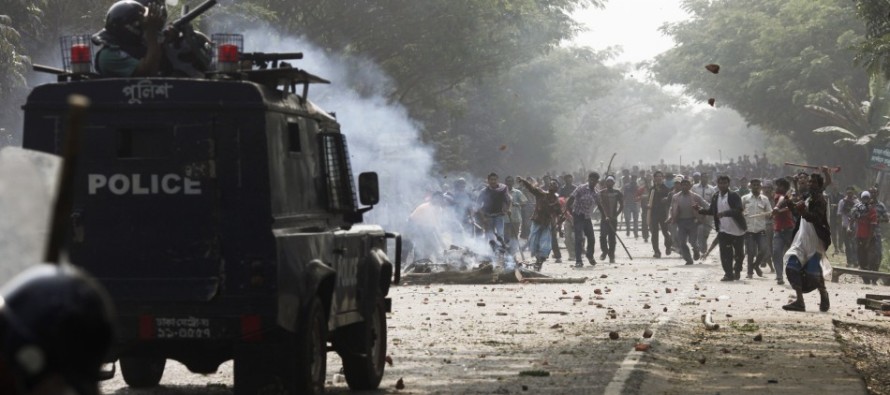Social unrest – cosmos out of chaos

National development of a country depends on a number of factors such as its natural resources, education, quality of labour, technologies, social values and attitude and governance structure. Continuing social unrest can harm vital the fabric of a society and hamper socio-economic development through waste of energy and lack of productive work. As a result, welfare of the people suffers and conflicts among various sections of the community perpetuate. Social unrest can lead to violent manifestations causing serious damage to private and public property. Violence can also cause damage to human lives, including deaths.
Social unrest can both be a cause and effect. For example, the ongoing unrest among the investors in the share market in Bangladesh has allegedly arisen due to manipulative activities by a section of the big players in the market. Similarly constant workers’ unrest in different industry sectors, especially in the garments sector, is the effect of real or perceived deprivations of workers in terms of due wages and conditions of work.
Unrest in different educational institutions in Bangladesh is also a case in point. As reported in the media, the current unrest in BUET in Dhaka involving students and teachers is the result of certain activities by the university authority (VC and Pro VC in particular). Any such unrest causes immense damage to educational outcomes in the country.
Apparently social unrest in Bangladesh has become systemic manifested in almost all areas of the society – education, manufacturing industry, health, law and order, justice, banking and finance, stock market, public administration and what not. Lack of discipline among the actors and agents in the society and repeated unruly behaviour by some sections of the people pose serious risk to developing a cohesive society in the country. This does not help develop and nurture an environment conducive to national progress that ensures human well-being – the greatest good for the greatest number.
It is obvious that those who run the affairs of the country know the causal relationships and triggers of social unrest and the hazard and damage it can create. If the issues are not urgently and effectively addressed with real political commitment by both the governing party and the opposition, the situation may lead to a national crisis with unintended consequences for all. People are already suffering due to maladministration and mismanagement by the government and this suffering will worsen as time rolls on.
Bangladesh is a small country with a huge population. As we understand, with limited land and other resources, it is difficult to solve all the problems and satisfy the needs of all people within a short span of time. . However, the key to best manage the affairs of the country and its economy is good governance, which requires the development and strengthening of social and economic institutions based on rule of law. Undue and motivated interference in the proper functioning of these vital institutions by those who make laws and govern the country has the potential to lead to severe anarchy with an adverse impact on achieving the desired goals and objectives. Worst of all, anarchy can ultimately result in further social unrest and all-encompassing conflicts in the society.
The question is who will de-escalate increased social unrest and avoid violent conflicts? It is said that things ultimately move towards their natural equilibrium. Current social disequilibrium in Bangladesh can be put back to a path of equilibrium – the desired steady state. At issue is who will endeavour to rein in the unbridled horse – the political-business-bureaucratic cartel and the associated widespread corruption, abuse of power and lawlessness?
It may be that the ‘CONTROL’ agent Max Smart (the hero of the old TV series Get Smart) will appear in Bangladesh to control the ‘KAOS’ (chaos!). However, he may make it messy and then the agent ‘99’ will come in to fix the problem under the guidance from the Chief!
Will not cosmos come out of chaos at the end of the day?
Abdul Quader writes from Canberra


